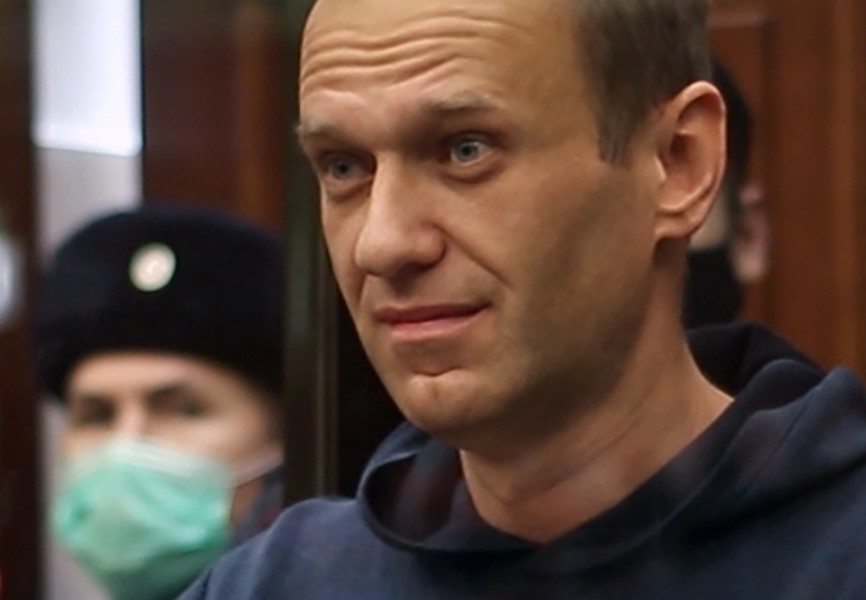Alexei Navalny's
defiant return to Russia last month after recovering from a poisoning attempt seemed to catch authorities flat footed. His subsequent arrest, imprisonment—
and the attempted poisoning last August with a Soviet-era nerve agent—have sparked surprisingly large street protests in recent weeks and cemented the anticorruption campaigner's position as President Vladimir Putin's best-known domestic critic. But now Navalny's supporters are grappling with the difficulties of effecting lasting change in Putin's Russia.
Shift in focus away from mass protests …
With Navalny now serving a prison sentence of nearly three years, his chief of staff Leonid Volkov announced a suspension of further rallies until the spring or summer. In a reference to the harsh police crackdown the protests have elicited, he said "it makes no sense to keep charging tanks with cavalry in the near future." Maintaining protest momentum also faces another important obstacle: The publicity around Navalny's arrest has not significantly altered public opinion, according to a series of recent surveys by respected polling firm Levada Center.
A Youtube video produced by Navalny that details corruption allegations against Putin linked to a
mysterious "palace" on the Black Sea has been viewed over 100 million times (Levada estimates that 30 million-35 million people have watched it in Russia). Yet few Russians who have seen it appear to have changed their minds about either Navalny or Putin.
These attitudes illustrate the continuing effectiveness of the Kremlin's propaganda, which portrays Navalny and his supporters as provocateurs acting on behalf of Russia's enemies in the West. This message is particularly resonant among older Russians, often nostalgic for Soviet times. Opposition to Putin and support for Navalny is strongest among the young—a trend that could spell long-term trouble for Putin. Still, even among young adults, the Russian president remains more popular than his arch critic at present.
… to upcoming elections
Navalny's supporters say they are now focusing on preparations for September's parliamentary elections. They have high hopes of using tactical voting (dubbed "smart voting" by Navalny) to cause upsets to the ruling United Russia. In practice, this is likely to involve Navalny's supporters voting for mainstream opposition parties, particularly the Communists, who are best placed to defeat United Russia. While this may cause some setbacks to the Kremlin, it probably won't have a major impact on the overall results. In 2019 and 2020 regional elections, tactical voting had some localized successes but did little to change United Russia's overall dominance.
A fundamental problem facing the proposed voting strategy is that it involves asking Navalny's supporters to back politicians who are de facto allies of the Kremlin—and often even more ardently opposed to Navalny. For example, Communist leader Gennady Zyuganov has denounced Navalny as a US spy. More surprisingly, Navalny has even come under attack from within the ranks of Western-leaning, pro-democracy politicians. Grigory Yavlinsky, the veteran leader of the liberal Yabloko party, has accused Navalny of promoting fascism and irresponsible populism.
Kremlin officials are nervous
The elections appear unlikely to cause major upsets for the Kremlin, but officials are nervous. They seem worried that discontent over economic issues could be a catalyst for further political unrest. The government is reported to be considering an additional package of spending on popular "social" programs (a category that typically includes social security benefits such as pensions and child support). According to Reuters,
the discussions involve an additional 500 billion rubles, or about 0.5% of GDP, to be added to this year's spending plan.
The Kremlin has denied the report. Nevertheless, it is very likely something along these lines will take place. Even in non-election years, such upward revisions to spending plans are commonplace and are usually presented as generous largesse from Putin—as happened a year ago, when Putin used an annual address to announced increased spending on popular social measures.
Even without a loosening of the fiscal purse strings, Russian economic conditions are set to improve this year, helped both by the rebound in oil prices and a rapid decline in virus numbers. The IMF has recently upgraded its 2021 growth forecast from 2.5% to 3%. That should also help the Kremlin politically in the months ahead, adding to the challenges Putin's opponents will face.

 Alexei Navalny in a Moscow courtroom. REUTERS
Alexei Navalny in a Moscow courtroom. REUTERS
